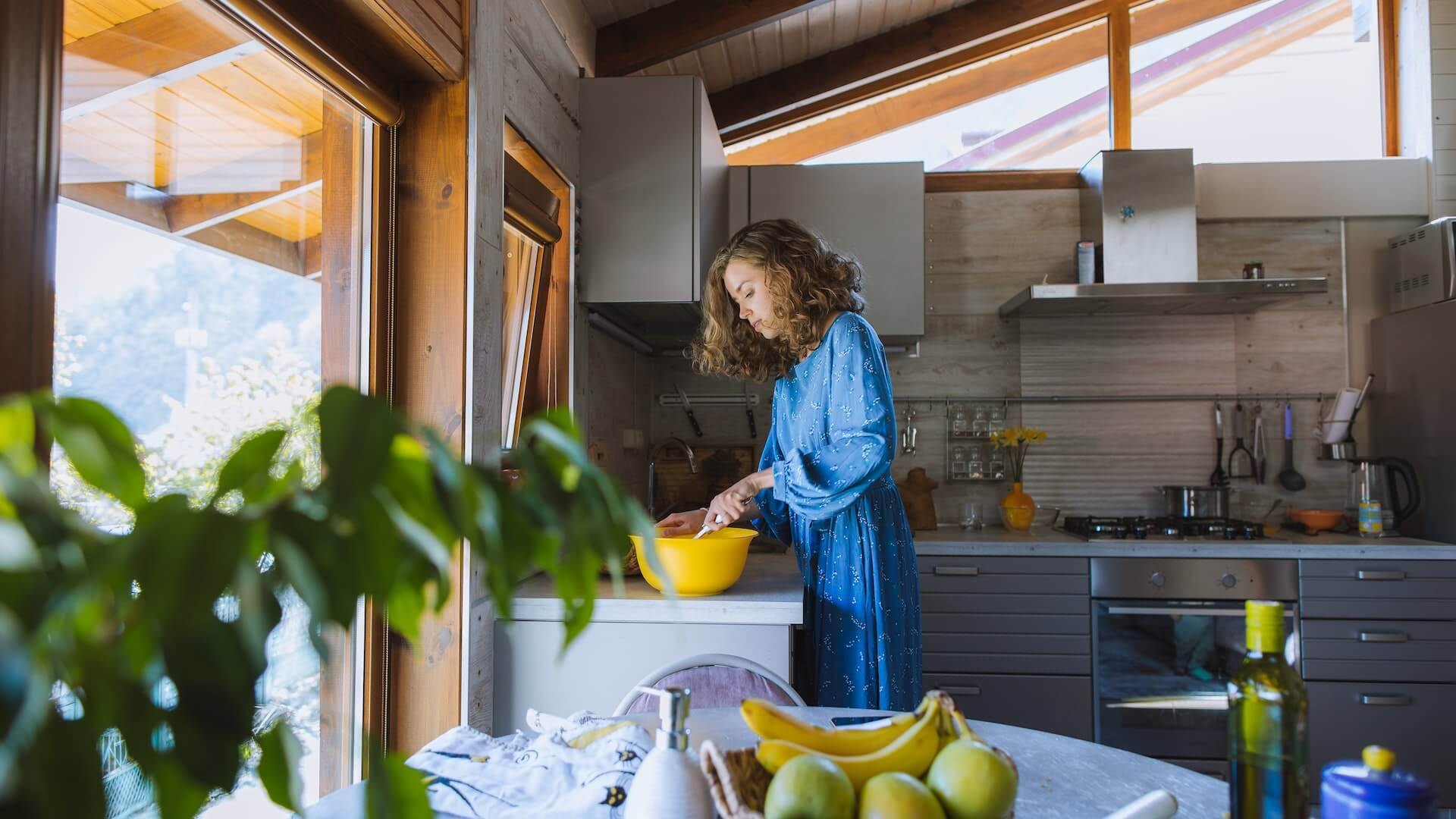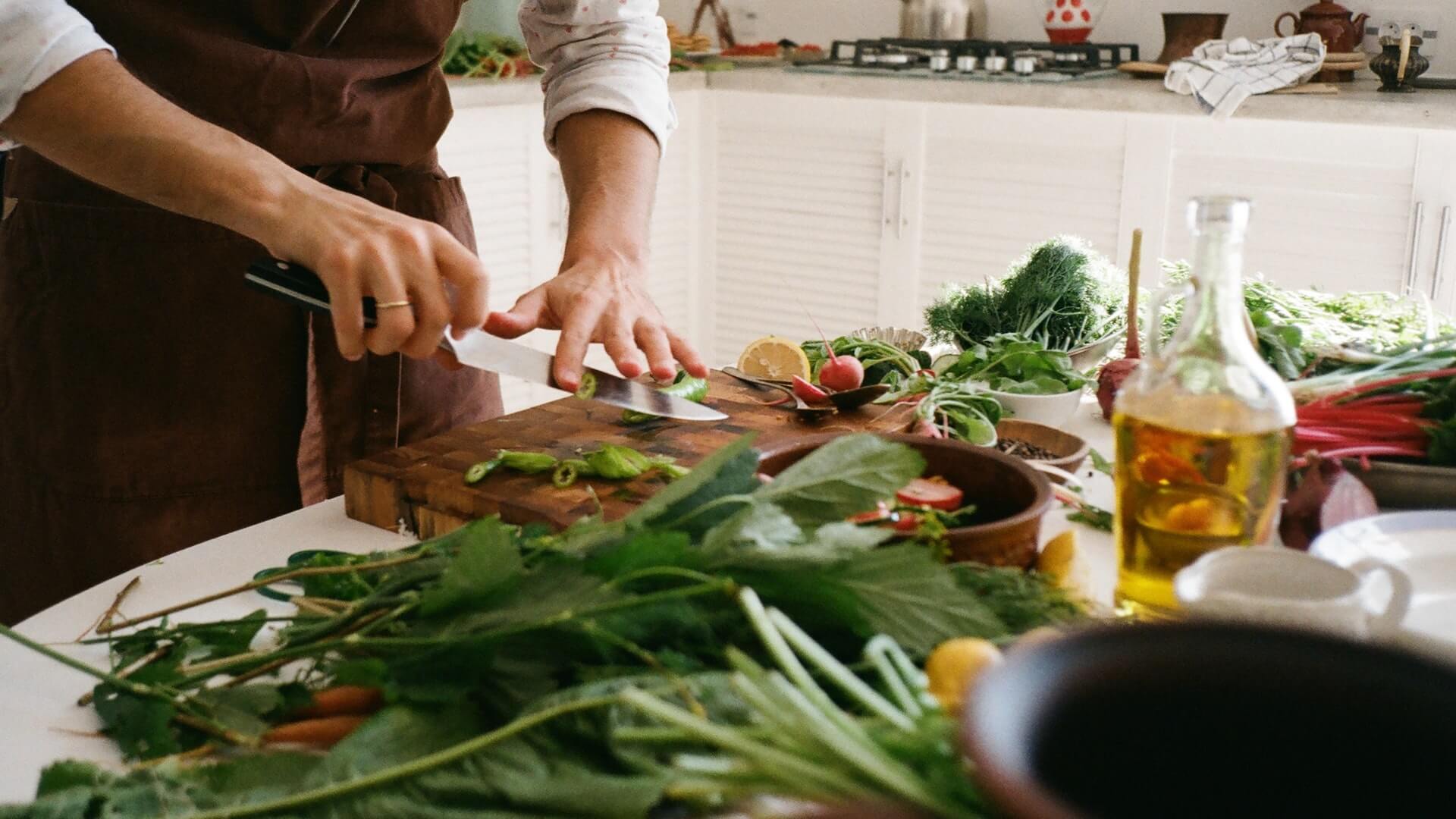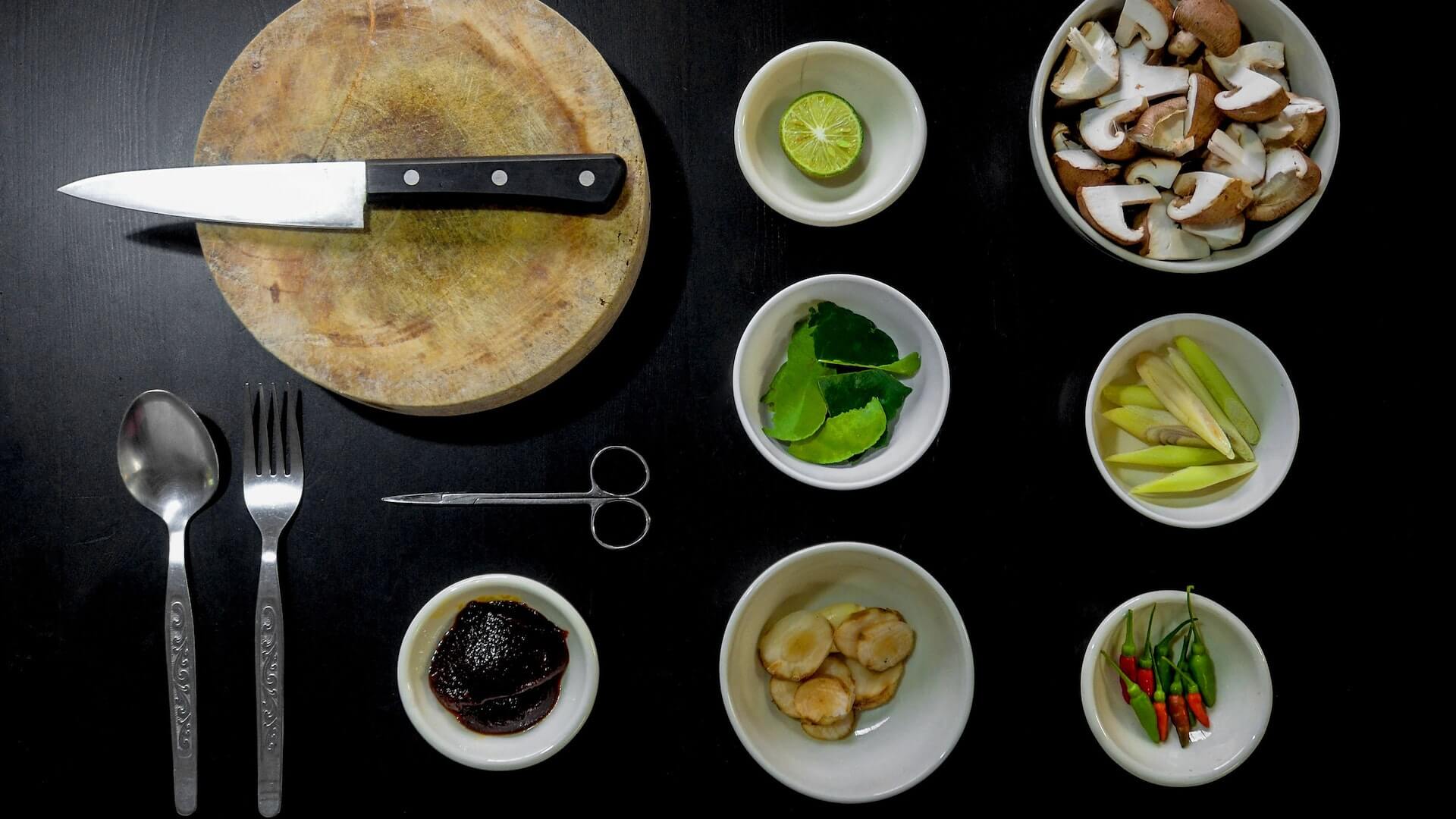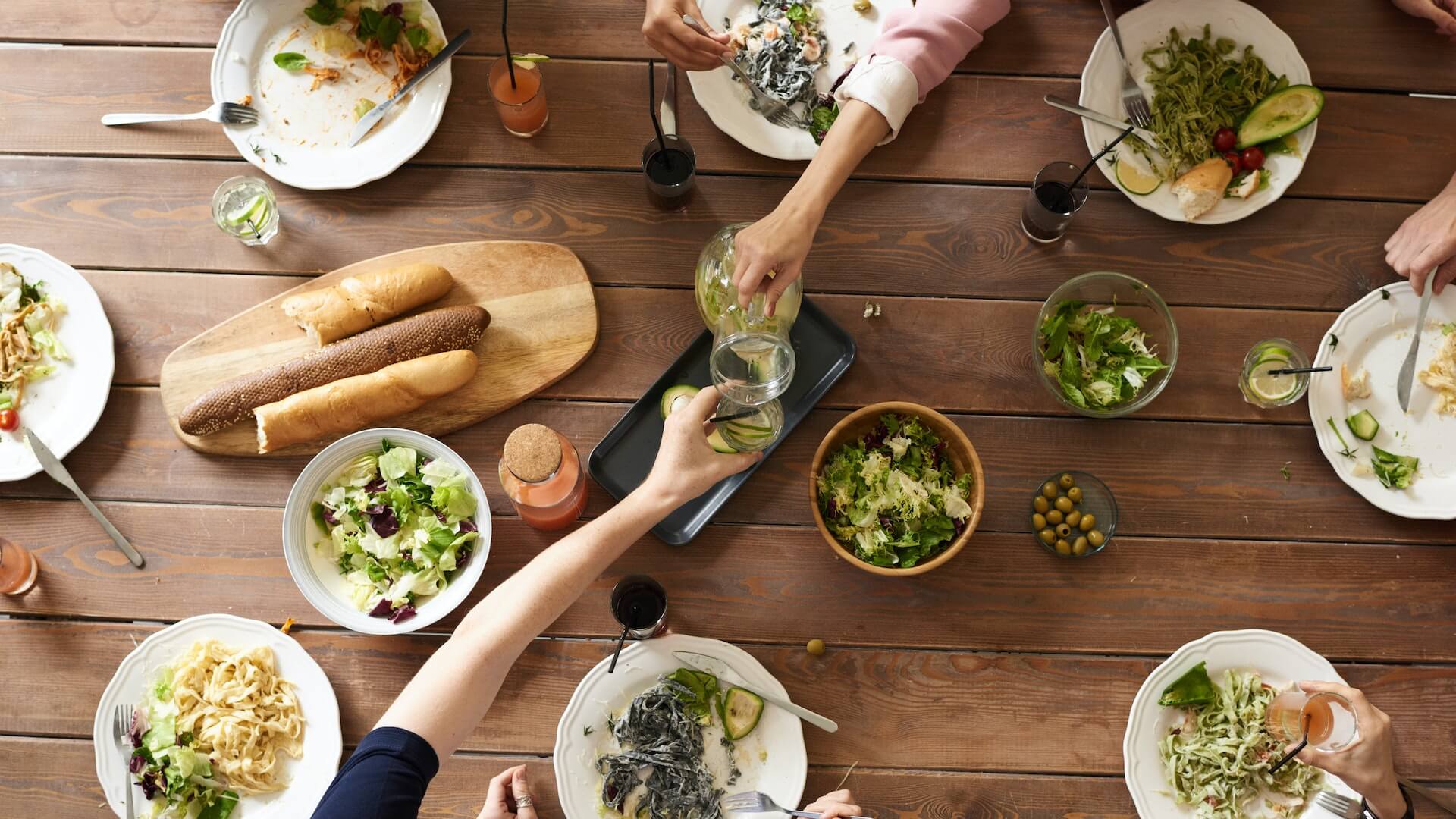Cooking is an essential skill that everyone should learn. Being able to create your own delicious and healthy meals not only saves you money but also helps you maintain a healthy lifestyle. However, many people find cooking daunting, and that’s why they rely on takeout or pre-packaged meals. But with a little bit of practice and knowledge, cooking can be a fun and rewarding experience. In this blog post, we will cover the essential basics that every beginner needs to know in order to master the art of cooking. From basic knife skills and seasoning techniques to understanding cooking times and temperatures, this guide will provide you with all the information you need to get started on your culinary journey. So, let’s dive in and start cooking!
Introduction: Why cooking is an essential skill for everyone
Cooking is more than just a means to satisfy our hunger; it is an art form, a way to express creativity, and a life skill that is essential for everyone to master. In today’s fast-paced world, where convenience foods and takeout meals have become the norm, the importance of cooking at home has been somewhat overshadowed. However, there are numerous reasons why learning to cook should be a priority for every individual.

Firstly, cooking allows us to have complete control over the ingredients we use. By preparing our own meals, we can ensure that we are consuming fresh, wholesome ingredients and avoiding unhealthy additives, preservatives, and excessive amounts of salt or sugar. This control over our diet promotes better health and well-being, reducing the risk of various health conditions, such as obesity, heart disease, and diabetes.
Secondly, cooking provides us with the opportunity to explore different cuisines and flavors from around the world. It allows us to experiment with new ingredients, spices, and cooking techniques, expanding our culinary horizons and palate. The joy of discovering new flavors and creating delicious dishes is a truly rewarding experience that can bring immense satisfaction and a sense of accomplishment.
Furthermore, cooking is a valuable life skill that empowers individuals to become self-reliant and independent. It saves money by cutting down on dining out expenses and enables individuals to plan and prepare meals according to their own preferences and dietary restrictions. Knowing how to cook can also be a source of pride and contribute to a healthier lifestyle overall.
Lastly, cooking has the power to bring people together. Whether it’s cooking for family, friends, or loved ones, the act of preparing and sharing a meal fosters connection, communication, and bonding. It creates a sense of community and warmth that goes beyond the mere act of eating, making it an important social activity.
Stocking your kitchen: Essential tools and equipment for cooking
Just like an artist needs their paintbrushes and canvas, a cook needs their knives and pots. So, let’s dive into the essential tools and equipment that every beginner cook should have in their kitchen.
First and foremost, a good set of knives is a must-have. Invest in a chef’s knife, a paring knife, and a serrated knife. These three knives will cover most of your cutting and slicing needs in the kitchen. Make sure to keep them sharp for safe and efficient use.
Next, you’ll need a set of measuring cups and spoons. Accurate measurements are crucial in cooking, especially when following recipes. Whether it’s a pinch of salt or a cup of flour, having the right measurements will ensure consistent and delicious results.
A sturdy cutting board is also essential. Look for one that is large enough to comfortably chop ingredients and is made of a material that won’t dull your knives. Wooden or plastic cutting boards are popular choices.
In addition to knives and measuring tools, having a good set of pots and pans is vital. Start with a versatile frying pan, a saucepan, and a stockpot. These will cover a wide range of cooking techniques, from sautéing and frying to boiling and simmering.
Other essential tools include a whisk, spatula, tongs, and a set of mixing bowls. These will come in handy for various cooking tasks such as whisking eggs, flipping pancakes, and tossing salads.
Lastly, don’t forget about baking essentials if you have a sweet tooth or enjoy baking. A baking sheet, a round cake pan, and a muffin tin are great starting points for your baking adventures.
Understanding basic cooking techniques: Sauteing, boiling, grilling, and more
Understanding basic cooking techniques is crucial for every beginner cook. These fundamental skills lay the foundation for creating delicious and well-cooked meals. Whether you aspire to become a master chef or simply want to impress your family and friends with your culinary creations, mastering these techniques is essential.

One of the most versatile techniques is sautéing. It involves cooking food quickly in a small amount of hot oil or butter over medium-high heat. Sautéing allows for the development of delicious flavors while preserving the natural textures of ingredients. From sautéed vegetables to perfectly seared meats, this technique is a staple in many recipes.
Boiling is another basic cooking technique that is widely used. This method involves cooking food in boiling water until it reaches the desired doneness. It is commonly used for cooking pasta, rice, and vegetables. Understanding the appropriate cooking times and techniques for boiling ensures that your ingredients are cooked evenly and retain their flavors and nutrients.
Grilling is a beloved cooking technique that adds a unique smoky flavor to foods. Whether you prefer to grill indoors on a stovetop grill pan or outdoors on a charcoal or gas grill, mastering this technique allows you to create succulent grilled meats, vibrant vegetables, and even grilled fruit desserts. Understanding the various grilling methods and temperatures is essential for achieving the perfect char and flavor.
Other important cooking techniques to familiarize yourself with include baking, roasting, braising, and steaming. Each technique offers different advantages and yields different results. Baking allows for the creation of delectable pastries and bread, while roasting brings out the rich flavors of meats and vegetables. Braising involves slow-cooking tougher cuts of meat in liquid, resulting in tender and flavorful dishes. Steaming, on the other hand, is a healthy cooking method that helps to retain the nutrients and natural colors of vegetables and fish.
Knife skills: Mastering the art of chopping, slicing, and dicing
The way you handle and use a knife can make a significant difference in your cooking experience and the outcome of your dishes.

First and foremost, it is crucial to invest in a high-quality chef’s knife. This versatile tool will be your best friend in the kitchen, so it’s worth getting one that feels comfortable in your hand and has a sharp, durable blade. A well-maintained knife will make your chopping, slicing, and dicing tasks much easier and safer.
To start mastering your knife skills, it’s important to learn the proper grip and hold. Hold the handle firmly in your dominant hand and place your other hand on the blade, using your fingers to guide and control the knife. This grip will provide stability and precision as you cut through ingredients.
Next, practice the basic cutting techniques. Chopping involves cutting ingredients into rough, irregular pieces, while slicing creates thin, even pieces. Dicing refers to cutting ingredients into small, uniform cubes. Each technique requires specific motions, such as rocking the knife back and forth for chopping or using a smooth slicing motion for slicing.
Remember to always use a stable cutting board and keep your fingers curled under to avoid accidents. Take your time and focus on maintaining a consistent size and shape for your cuts. This will not only enhance the visual appeal of your dishes but also ensure even cooking.
As you gain confidence and proficiency, you can explore more advanced knife skills, such as julienne, chiffonade, and mincing. These techniques will allow you to create beautiful presentations and add depth of flavor to your recipes.
Lastly, don’t forget to keep your knife sharp. Dull blades can be dangerous and make cutting more difficult. Invest in a good knife sharpener or consider getting your knives professionally sharpened regularly.
The importance of recipe reading and following instructions
Cooking is a science, and just like any scientific experiment, precise measurements and step-by-step procedures are crucial for achieving the desired outcome.
Recipes serve as your roadmap in the culinary world. They provide a detailed breakdown of the ingredients needed, their quantities, and the specific techniques required to create a delicious dish. Neglecting to read a recipe thoroughly or disregarding its instructions can result in disappointing outcomes, such as overcooked or undercooked food, improper flavor balance, or even complete recipe failure.
When you first start out, it’s essential to choose recipes that align with your skill level and culinary interests. Begin with simple and straightforward recipes that clearly outline each step. As you gain confidence and experience, you can gradually move on to more complex recipes with multiple components.
Before you start cooking, take the time to read through the entire recipe from start to finish. Familiarize yourself with the ingredients and equipment needed, as well as the cooking techniques involved. This will help you prepare and organize your work station efficiently, ensuring a smooth cooking process.
When it comes to following instructions, precision is key. Take extra care in measuring ingredients accurately, as even slight deviations can alter the final outcome. Follow cooking times and temperatures specified in the recipe, as they are designed to achieve optimal results.
While it may be tempting to add your own personal touch or deviate from the recipe, especially as you gain more confidence in the kitchen, it’s crucial to follow the recipe as closely as possible, especially in the beginning stages. Once you have mastered the basics, you can begin to experiment and adapt recipes to suit your taste preferences.
Essential ingredients and pantry staples every beginner cook should have
As a beginner cook, it’s important to set yourself up for success by stocking your pantry with essential ingredients and staples. These items will not only enhance the flavors of your dishes but also provide you with the necessary building blocks for a variety of recipes. So, let’s take a look at some must-have ingredients that every beginner cook should have in their kitchen.

1. Olive oil:
A versatile and healthy cooking oil, olive oil is perfect for sautéing, roasting, and dressing salads. Its rich flavor adds depth to your dishes and can be used in both savory and sweet recipes.
2. Salt and pepper:
These basic seasonings are the foundation of flavor in any dish. Invest in high-quality sea salt and freshly ground black pepper to elevate the taste of your meals.
3. Garlic and onions:
These aromatic ingredients are commonly used in countless recipes. Garlic adds a distinct savory taste, while onions provide depth and sweetness to your dishes. Keep them on hand for flavoring sauces, soups, stir-fries, and more.
4. Herbs and spices:
Building a collection of dried herbs and spices will greatly enhance the flavors of your meals. Start with essentials like basil, oregano, thyme, cumin, paprika, and cinnamon. Experiment with different combinations to create your own signature flavors.
5. Stock or broth:
Whether it’s chicken, vegetable, or beef, having stock or broth on hand is incredibly useful for soups, stews, and sauces. It adds depth and richness to your dishes, making them more satisfying.
6. Flour and sugar:
These pantry staples are crucial for baking and cooking. All-purpose flour can be used for a variety of baked goods, while granulated sugar is essential for sweetening desserts and beverages.
7. Canned tomatoes:
A can of diced or crushed tomatoes is a versatile ingredient that forms the base of many pasta sauces, soups, and stews. It’s a convenient way to add tangy flavor and vibrant color to your dishes.
8. Rice, pasta, and grains:
Stock your pantry with different varieties of rice, pasta, and grains like quinoa or couscous. These pantry staples serve as a foundation for many meals and can be paired with a variety of proteins and vegetables.
Understanding flavors and seasoning: Balancing tastes and experimenting with spices
The ability to balance tastes and experiment with spices can elevate your dishes to new heights and make them truly exceptional.
Flavor is the essence of any dish, and it is the combination of different tastes that creates a harmonious and enjoyable culinary experience. The basic tastes that we perceive are sweet, sour, salty, bitter, and umami. By understanding how these tastes interact with each other, you can create a well-balanced dish that pleases the palate.
Experimenting with spices is a great way to add depth and complexity to your dishes. Spices not only enhance the flavors but also bring out the unique characteristics of different ingredients. Each spice has its own distinct flavor profile and can completely transform a dish. From the warmth of cinnamon to the heat of chili peppers, the world of spices is vast and exciting.
When it comes to seasoning, it’s important to start with a light hand and gradually build up the flavors. You can always add more seasoning, but it’s difficult to fix an overly seasoned dish. Taste as you go and adjust accordingly. Remember, a good cook is not afraid to experiment and try new combinations of flavors.
Additionally, understanding the cultural and regional uses of spices can help you create authentic dishes from different cuisines. For example, Indian cuisine is known for its bold and aromatic spice blends, while Thai cuisine often incorporates the vibrant flavors of lemongrass, galangal, and kaffir lime leaves.
To expand your knowledge of flavors and seasoning, take the time to explore different cuisines, try new recipes, and experiment with spices you may not be familiar with. Keep a well-stocked spice rack and don’t be afraid to mix and match to create your own signature flavor profiles.
Proper food safety and hygiene practices in the kitchen
Whether you’re a beginner or a seasoned chef, prioritizing food safety is crucial to ensure the health and well-being of yourself and those you’re cooking for.

One of the first things to remember is to always wash your hands thoroughly before handling any food. This simple step helps to eliminate any potential bacteria or contaminants that may be on your hands. Use warm water and soap, and be sure to scrub for at least 20 seconds, paying special attention to the areas between your fingers and under your nails.
Another important aspect of food safety is proper handling and storage of ingredients. Make sure to separate raw meats, poultry, and seafood from other items to avoid cross-contamination. Use different cutting boards, utensils, and plates for raw and cooked foods. It’s also crucial to store perishable items in the refrigerator at the appropriate temperature to prevent bacterial growth.
When it comes to cooking temperatures, it’s important to thoroughly cook foods to kill any harmful bacteria. Use a food thermometer to ensure that meat, poultry, fish, and eggs are cooked to the recommended internal temperature. Avoid consuming undercooked or raw foods, as they can pose a risk of foodborne illnesses.
Maintaining a clean and sanitary kitchen environment is also key. Regularly clean and sanitize all surfaces, utensils, and equipment used during food preparation. Pay attention to areas that come into direct contact with food, such as countertops, cutting boards, and knives.
Tips for meal planning, grocery shopping, and budgeting
Meal planning, grocery shopping, and budgeting are essential skills to master when it comes to cooking. Not only do they help you stay organized and efficient in the kitchen, but they also play a crucial role in saving both time and money.
To start, meal planning is the foundation of successful cooking. Taking the time to plan your meals for the week ahead allows you to make a comprehensive grocery list and ensures that you have all the necessary ingredients on hand. It eliminates the last-minute scramble to figure out what to cook and helps you avoid unnecessary trips to the grocery store.
When it comes to grocery shopping, it’s important to be strategic. Begin by creating a detailed list based on your meal plan, taking into account the ingredients you already have at home. Stick to the list to avoid impulse purchases and unnecessary spending. Additionally, consider shopping at local farmers’ markets or bulk stores to find fresh produce and pantry staples at a lower cost.
Budgeting is another crucial aspect of cooking. Setting a realistic food budget helps you make informed decisions about the ingredients you choose and allows you to prioritize your spending. Look for sales, discounts, and coupons to maximize your savings. Consider buying ingredients in bulk, as this can often be more cost-effective in the long run.
Building your culinary repertoire: Trying new recipes and experimenting
Building your culinary repertoire is an exciting journey that allows you to expand your cooking skills and discover new flavors. Trying new recipes and experimenting in the kitchen is essential for every beginner looking to master the art of cooking.

One of the best ways to broaden your culinary horizons is by exploring different cuisines. Venture beyond your comfort zone and dive into the world of international flavors. Whether it’s Thai curries, Italian pastas, or Indian spices, each cuisine offers a unique set of ingredients and techniques that will challenge and inspire you.
Don’t be afraid to step outside of your culinary comfort zone. Embrace the unknown and try recipes that may seem intimidating at first. Remember, every great cook started as a beginner, and it’s through practice and experimentation that their skills evolved.
As you embark on your culinary journey, keep a collection of tried and tested recipes that you enjoyed. This will serve as a foundation for your culinary repertoire. Start with simple recipes and gradually work your way up to more complex dishes. With each successful creation, your confidence will grow, and you’ll feel more comfortable taking on new challenges.
Additionally, don’t hesitate to put your own spin on recipes. Cooking is an art, and just like any artist, you have the freedom to express yourself. Feel free to add your favorite herbs and spices, experiment with different cooking techniques, or even create your own unique fusion dishes.
Honing your skills: Taking cooking classes or learning from experienced cooks
While practice makes perfect, there is no denying the value of guidance and instruction from experienced cooks. One of the best ways to accelerate your learning process and gain valuable insights is by taking cooking classes.
Cooking classes offer a structured environment where you can learn from professional chefs who have spent years perfecting their craft. These classes provide a hands-on experience, allowing you to learn various techniques, understand flavor combinations, and explore different cuisines. Whether you are a complete novice or have some cooking knowledge, there are classes tailored to every skill level.
Attending cooking classes not only gives you the opportunity to learn new recipes but also to ask questions, seek advice, and receive immediate feedback from the instructors. This interactive environment fosters a deeper understanding of cooking principles and helps you overcome any challenges you may face.
In addition to formal cooking classes, you can also learn from experienced cooks in your life. Maybe it’s a family member, a friend, or a neighbor who has a knack for creating delicious meals. Don’t be afraid to ask them for guidance or invite yourself over for a cooking session. Learning from those who have already mastered the art of cooking can provide valuable tips, tricks, and insights that are often passed down through generations.
The joy of sharing meals: Hosting gatherings and enjoying the fruits of your labor
Once you have mastered the basics of cooking, it’s time to take your culinary skills to the next level by hosting gatherings and sharing meals with your loved ones. There is something truly special about bringing people together over a delicious home-cooked meal and creating lasting memories.

Hosting a gathering allows you to showcase your newfound cooking expertise and share your passion for food with others. Whether it’s a cozy dinner party with close friends or a festive family gathering, the joy of preparing a meal for others is incomparable. It’s a chance to express your creativity, experiment with new recipes, and receive valuable feedback from your guests.
The process of planning a gathering starts with choosing a theme or a menu that reflects your personal taste and style. Consider the preferences and dietary restrictions of your guests to ensure that everyone feels included and catered to. From there, create a shopping list and gather all the necessary ingredients and supplies.
As the host, you have the opportunity to set the ambiance and create a welcoming atmosphere. Pay attention to details like table decorations, lighting, and background music to enhance the overall dining experience. A beautifully set table can elevate the enjoyment of the meal and make your guests feel special.
Once the meal is prepared, it’s time to gather around the table and savor the fruits of your labor. Witnessing the joy and satisfaction on your guests’ faces as they indulge in your culinary creations is immensely rewarding. The conversations flow, laughter fills the air, and bonds are strengthened through the shared experience of a delicious meal.
Remember, hosting gatherings is not just about the food; it’s about creating a warm and inviting environment where people can connect and create lasting memories. Don’t be afraid to experiment with new recipes, incorporate personal touches, and infuse your own unique style into the event. The more you practice the art of hosting, the more confident and skilled you will become.
Conclusion
Cooking is not only a valuable skill but also a creative outlet that can bring immense joy and satisfaction. By mastering the essential basics outlined in this article, you will gain the confidence and foundational knowledge needed to explore and experiment in the kitchen. Whether you’re whipping up simple weeknight meals or tackling more complex recipes, remember that practice makes perfect. So, put on your apron, grab your spatula, and let your culinary adventure begin!



